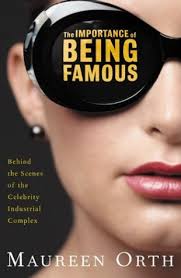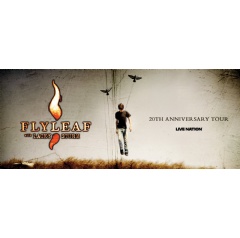Why should one embrace "social-(ized )- media"?
http://www.youtube.com/watch?v=Hm7UiSObOlQ&feature=related
In a sound-bite, YOU HOO TUBE, face - book - link me in, minute news drenched-society, where we are all going A.D.D. or reading books-newspapers-periodicals from tape--> truncated to computer, nothing brings me more joy than the film clip of Cleavon Little riding his horse in the desert with Basie acc. (from Blazing Saddles, (1974)).
Let the film + clip + the sound + bite AD NAUSEUM live on -- all I need to do is point click and laugh my troubles far away
----------------------------
is our social media going to give advertisers their big payoff? Is this where the lemmings are going to swim ashore at?
Hmmmmmm....whatever happened to reading...a....book?
AP - Uncertainty aplenty as Web, media leaders convene
Monday July 7, 6:01 pm ET
By Jeremy Herron, AP Business Writer
Media, Internet moguls meet at Idaho luxury retreat, most seeking more online revenue
When media and technology tycoons convene Tuesday in idyllic southern Idaho for five days of dealmaking and outdoor recreation, the mountain air will carry more than a whiff of uncertainty as most arrive with their businesses in various states of disarray.
ADVERTISEMENT
Powerful moguls come to Allen & Co. investment bank's annual retreat in Sun Valley seeking new acquisitions and alliances and -- increasingly in recent years -- the opportunity to retool their businesses.
But this year both media and online leaders are grappling with the Internet's increasing fragmentation. And they're all looking for more advertising revenue online, where media companies have recouped only a small fraction of what they lost in print and where Web companies want to maximize their investments.
Even the top Internet companies -- save maybe Google Inc. -- are seeing revenue growth slowing as online audiences fragment. And they worry that, without steady access to high-quality content, they won't be able to attract enough viewers to keep growing fast.
At the same time, the barons of old-line newspapers and broadcast TV seem to have realized it's pointless to keep fighting the shift online, but they're still unsure how to embrace it. And they're struggling to attract new online users just to survive.
The flagging economy, slowing consumer spending and costlier capital on Wall Street will only add to any gloom and may prevent the summit, hosted for 25 years by investment banker Herb Allen, from living up to its reputation as an incubator for big deals.
"This could be the least headline-making Allen & Co. event in the past 10 years," said Porter Bibb, managing partner at Mediatech Capital Partners, a financier of media businesses. "Most companies have real problems and they don't necessarily know where to turn for help."
Microsoft co-founder Bill Gates, a perennial at the Allen conference, won't be joined by CEO Steve Ballmer. But he is bringing the company's top dealmaker, Henry Vigil, Microsoft's senior vice president for strategy and partnership.
The world's largest software maker, still desperate to catch up in Internet search and grab more of the ad revenue it generates, is reportedly trying to enlist Time Warner Inc. and News Corp.
for a joint bid to split up Yahoo Inc. for parts. For years, Yahoo has lost ground to Google in the race for Internet ad sales. And its embattled CEO and co-founder, Jerry Yang, who faces attacks on several fronts after Microsoft Corp. withdrew a $47.5 billion takeover bid, will be on hand.
Will Gates and Vigil seek out Time Warner CEO Jeff Bewkes or News Corp. Chairman Rupert Murdoch? Will Yang seek cover again with Google founders Larry Page and Sergey Brin, who inked a deal in June with Yahoo on shared ad sales? Investor Carl Icahn, among those most actively pushing Yang to sell or make another deal with Microsoft, will not be in Sun Valley, according to a copy of the guest list obtained by The Associated Press.
These delicate dances among the Internet titans -- unlikely before power began diffusing in the Internet and media worlds -- underscore how tenuous a hold on power the top firms have. Even Google appears at a crossroads in the content vs. distribution dilemma as it dabbles in setting up its own newsgathering capabilities.
Time Warner's Bewkes appears to have decided the future is in producing content that can attract large audiences, not in controlling the means of distributing it: He is divesting Time Warner of both its cable property and the faltering AOL online access service. But what to do next isn't clear.
"These companies' identities and the way forward may not be as clear as in years past," said Peter Kreisky, of Kreisky Media Consulting, who predicted this year's conference will be "much more amorphous."
Indeed, what will these guys -- and, aside from Yahoo President Susan Decker, the media and Internet worlds are still decidedly run by men -- be talking about?
"How do you build or buy an industry leader in the digital world?" Kreisky suggested. "The business model to generate money online is still emerging."
What to do about user-generated content -- which attracts a large audience but raises editorial control issues and has yet to generate significant revenue -- and how to capitalize on intensely popular social networks will still be important debates this week.
At Sun Valley two years ago, it is widely believed that YouTube founder Chad Hurley laid the groundwork for his company's sale to Google three months later. Media companies saw YouTube as having solved the problem of attracting users and figured they could soon hitch their own content to its wagon.
Last year, Facebook founder Mark Zuckerberg enjoyed most-favored status at Sun Valley because participants saw his social-networking site's 70 million registered users as a ready-made advertising audience. He'll likely be in demand again, and Murdoch -- hailed for snapping up MySpace in 2005 -- will not be lonely either.
But no one so far has turned social networking into a rainmaker, though that may not take attention away from LinkedIn Chairman Reid Hoffman. His networking site's audience of professionals is seen as an optimal vehicle for attracting deep-pocketed advertisers, and it's fresh off an equity investment that valued it at $1 billion.
Deals may be rare as the biggest players retrench. Viacom Inc. Chairman Sumner Redstone -- an old-school mogul of legendary power and a Sun Valley regular -- is reportedly even skipping this year's conference. Investors have soured on Viacom's split from CBS Corp. two years ago, which Redstone thought would position them both to tackle the Internet more successfully. Viacom CEO Philippe Dauman and CBS boss Leslie Moonves will represent the feuding siblings in Idaho.
Even Murdoch has been relatively quiet in the months since News Corp. closed its deal for Dow Jones & Co., parent of The Wall Street Journal.
And newspaper companies finished last quarter with a flourish of staff cuts amid cost increases and falling ad revenue. Two weeks ago, half a dozen newspapers said they would slash payrolls by a combined 900 jobs and Tribune Co., one of the biggest newspaper publishers in the country, said it might sell its iconic headquarters tower in Chicago to raise money. Last week, three more papers announced more than 400 more job cuts, including 250 at Tribune's Los Angeles Times.
Tribune boss Sam Zell is not coming to Sun Valley. But Washington Post Co. head Donald Graham, E.W. Scripps Co. CEO Kenneth Lowe and Thomson Reuters CEO Thomas Glocer are all scheduled to be there.
"The heads of the traditional media companies are likely to be despondent," said John Morton, a newspaper industry analyst at Morton Research Inc. "They are realizing that newspapers focused on bigger markets may be losing advertising forever, and they have no answers for that."
Fret not for the kingpins, though, as they will have plenty of opportunity to find solace in the surrounding beauty. The closed-door meetings -- schedules and even event names are closely guarded -- typically break up in late morning.
That leaves the afternoons free for outdoor pursuits from horseback riding to mountain biking to golf. And conference participants typically spend their evenings at invitation-only dinner parties, where they'll be able to debate the NBA draft with basketball commissioner David Stern, or the Chicago Cubs' unexpected dominance with Major League Baseball Commissioner Bud Selig.
# # #
-











No comments:
Post a Comment